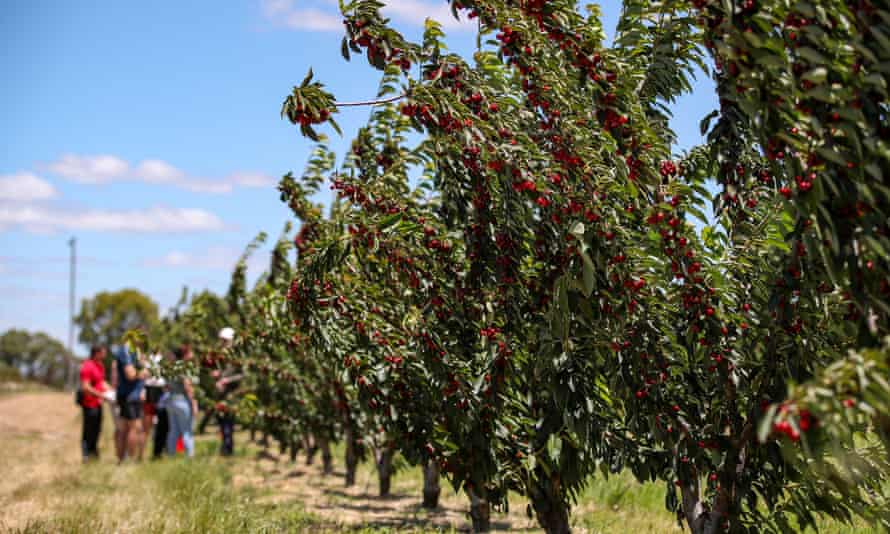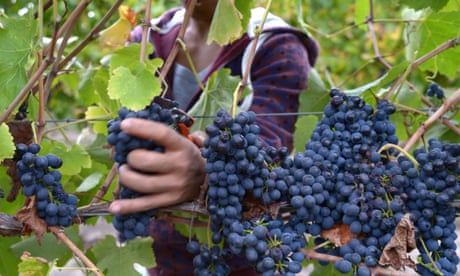Backpackers tell of hours hunting for fruit that’s almost as meagre as their pay, as Fair Work Commission case begins

File photo of Cherry pickers in Young, NSW. Unions are trying to change the Horticulture Award, which allows paying by piece and does not specify a minimum hourly wage. Photograph: Xinhua/Rex/Shutterstock
Ben Butler
Sat 17 Jul 2021
Ben Butler
Sat 17 Jul 2021
Niko Karhu laughed when he got his paycheque for $31.24 after spending five hours picking tomatoes on a Bundaberg farm last May.
The Finnish backpacker says he spent five hours hunting for fruit that was almost as meagre as his pay.
“It was more like, like just walking, wondering where they are and picking a tomato every, you know, two or three metres,” he says.
At the end of the day, Karhu, who is now training to be a diving instructor, was paid based on the – small – amount of fruit he had been able to pick.
Paying by piece is allowed by the Horticulture Award, which governs fruit and vegetable picking.
Unlike most awards, it does not specify a minimum hourly wage that workers must receive – something unions are trying to change.

Seasonal work on Australia’s farms: ‘No one wants to do this sort of work’
Last week, the Fair Work Commission heard arguments in a case brought by the Australian Workers Union, and supported by the United Workers Union, to change the award so that pickers have to receive at least the Australian minimum wage, $20.33 an hour, for what is hard, physical work that often takes place under beating sun or pouring rain.
Launching the case in December, the AWU national secretary, Dan Walton, told Guardian Australia that the industry had “become the centrepiece for exploitation in this country”, with employers paying as little as $3 an hour for labour.
But employers oppose the increase – one group, the Australian Fresh Produce Alliance, has told the commission that a lack of minimum rates “means that novice employees are incentivised to learn the job and achieve competence as quickly as reasonably possible and more experienced employees are incentivised to maximise their productivity”.
This was not Karhu’s experience. At the end of the day when he was presented with his pay he “absolutely burst into laughter”, he says.
“I knew that going to Bundaberg was a risk,” he says. “I’ve never heard anything good about that town work-wise. But I was desperate.”
Karhu, who is a UWU member, needed to work 88 days on a farm in order to stay in Australia on a working holiday visa.
A few days later, he again worked for piece rates, this time at a chilli farm. This time, the problem was not lack of fruit – it was the low piece rates. Experienced pickers did not fare any better, he says.
“I remember that we were moving at pretty much the same pace, all of us,” he says.
“Obviously it was my first – and last – day but a few of the people there, they’d been there before, and I wasn’t that far behind.”
His pay that day was $32.40.
No comments:
Post a Comment